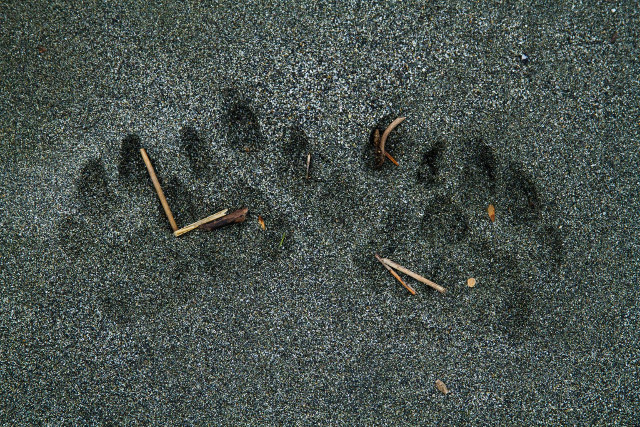
Johnston (‘16, Wildlife) has been a tracker for 15 years and currently works for the Hoopa Tribe tracking fishers, mountain lions, and other animals.
Johnston and the Natural History Museum aim to help more people get in touch with the unseen local wildlife with the upcoming series of classes. Tracking is important for conservation and scientific research, as well as for wilderness safety, but it’s also a way for the average person to connect to the landscape and ecosystem.
“Tracking enables us to be aware of the ways that the landscape we move through is used by animals, and slowly as time progresses and your skills improve the feeling of being somewhat like a ‘tourist’ in woods goes away, and you start to feel more and more connected to your local landscape and the creatures that call it home,” Johnston says. “There is nothing magical or mystical about tracking—no auras or visions or spiritual quests—just humans remembering how to interact with the woods in the way that all the other life forms on this planet do.”
Johnston’s passion for animals and the outdoors began at an early age, and after retracing the steps of a bobcat in Washington State one time he was hooked. “I was instantly in awe of the way that tracking enables us to view into the normally secret lives of animals in such an intimate manner,” he says.
Large animals are secretive and roam over wide areas, making them difficult to observe in person. For his work, Johnston relies on tracks and other semi-permanent clues like scat, burrows and scratch marks, as actual sightings are rare.
A free lecture will take place at the Natural History Museum on Friday, March 3 at 7 p.m., during which you can learn more about the art of tracking and hear about some of the amazing experiences Phil has had as he interacts with wildlife up close and personal.
The first class takes place on Saturday, March 4 at 9 a.m. Each workshop will be in the field for approximately five hours at different locations, depending on the conditions.
Each monthly field class is limited to 20 people. To reserve a spot, or for more information, call the museum at 826-4479 or print out a signup sheet found at humboldt.edu/natmus and mail in a check. Registration costs $25 and discounts apply to Sequoia Park Zoo and Natural History Museum members, as well as seniors and students. In addition, the museum is offering three HSU student scholarships to students with a high interest and financial need. More information is available on the flyer here.